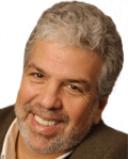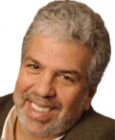
Career
What Is Humanity's Biggest Challenge Today?
Focusing on human character as the world progresses
Posted November 29, 2011
I recall a morning in 1997 when I opened the newspaper to read that a sheep, named Dolly, had been genetically cloned. The enormous power of genetic cloning was upon us and I shuddered inside thinking of how ill-prepared we were to handle this power for the common good. At that time in my life I had a casual custom of reading ancient Chinese and Japanese poetry. In doing so I had been struck with how similar the human condition was 1,000+ years ago compared to today. People fell in and out of love then and now. People fought wars then and now. Sex and greed toppled leaders long ago and now. In a moment it became apparent to me that our physical powers were far outstripping our psychological readiness. Here we were heading down the road towards cloning humans, but not remotely prepared to deal with all of the questions attendant to that capability.
Technological changes in medicine, communication, transportation, and weaponry have been amazing and fast. My grandfather was born in a world without commercial air flight and died having seen men land on the moon! We wage wars with remote controlled drones and smart weapons. We sustain life nearly as long as we want with medical machines. Our physical world is drastically different today than a mere 50 years ago. On the psychological front, however, it would be hard to argue that we have matured to be more wise, humane, just, courageous, spiritual, or temperate in our behavior than our forbearers.
Imagine a graph displaying two growth curves over time - one our understanding and mastery of our physical world and the other our knowledge and mastery of our psychosocial world. The top line, representing our physical domain, rises steeply while the bottom line, representing our psychological maturity, tilts only slightly in a positive direction. The gap between the lines grows larger and larger as time marches on along the x-axis. This gap represents a danger zone for our species. What happens as the maturation of character does not evolve sufficiently to handle our increasing physical powers? Our prisons, and child abuse clinics, and drug abuse clinics are filled with stories that answer that question. Our newspaper headlines shout out answers to this question every day recounting people at their worst. Would our economy have collapsed if virtues ran rampant in our financial institutions as opposed to greed and dishonesty? Would savage disregard for human rights be as ubiquitous around the world as they are today? In my imagination the ever-widening gap between the lines on the imaginary graph look like the jaws of an alligator - at any moment ready to snap shut with crushing force on us all.
If we continue to acquire powers over our physical world without appropriate attention to growing our character, we seem doomed to take painful missteps as we walk into our future.
The time has come to dedicate a serious scientific effort to map the complex terrain of human character - those aspects of human personality that account for us being our best selves and living our best lives. When we have made such dedicated efforts in other areas of inquiry, our knowledge accelerates quickly and close behind are practical applications that have their roots in this new scientific understanding. We can expect the same with a dedicated effort to understand human character.
The effort has begun. In 2001, under the intellectual leadership of Drs. Martin Seligman and Christopher Peterson, and with the philanthropic support of the Manuel D. and Rhoda Mayerson Foundation, the VIA Institute on Character was formed. The mission of this non-profit organization is to catalyze scientific inquiry into the nature of character and to bridge the gap between science and practice. VIA's first phase was to create the two basic tools this science needed - a language of character strengths and tools for measuring character. After 3 years, and with input from dozens of noted scholars and practitioners, the first ever classification of character strengths was articulated, and psychometrically sound surveys were created for measuring character in adults and youth. The VIA Classification of Character Strengths and Virtues may be thought of as being akin to the Periodic Table of Elements. As the latter classification became catalytic in the science of chemistry, the former is a framework that can be used to advance the science of character. The VIA Classification identifies 24 elemental characteristics of personality that are thought to be the basic building blocks of character. The VIA Surveys measure the strengths of each of these elements in individuals.
The work on character has struck a chord with people around the world. The publication of this foundational work has been hailed by noted psychologists with statements such as "destined to become a classic" and "the most important work in psychology in the past half century". Nearly a million people in over 240 countries around the globe have taken the VIA Survey (see www.viacharacter.org). VIA now has an unprecedented database of character profiles that has been partially dissected and needs further unraveling. This new scientific effort is in its infancy and needs to attract the funding to support further research.
What is the nature of character? Arguably, without answering this question our answers to other questions matter little. Though we may understand how gravity holds us on this Earth, will we simply use this knowledge to escape its grasp to live our stunted lives on another planet? Though we may come to understand consciousness, will we know how to aim our consciousness to create great lives? As a colleague said to me as I gushed about the awesome capabilities of the iPhone and all of its applications, "Does it help us be better human beings"? Understanding character is an important strategy for escaping the dangers that may be lurking in our current developmental trajectory, and a critical pathway to creating a world filled with justice, humanity, wisdom, courage, temperance, and spirituality. Our best is yet to come.

